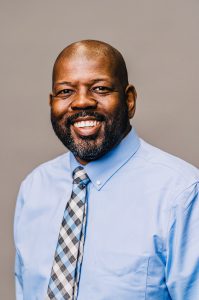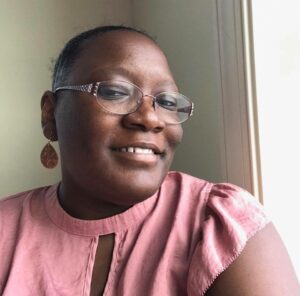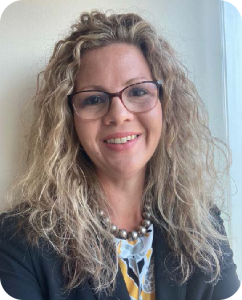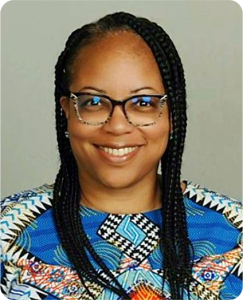Bridging the Gap: Advancing Equity in Mental Health Counseling
Introduction to the Special Issue
Michael Jones, Stacey Diane Arañez Litam, Latoya Haynes-Thoby
This special issue of The Professional Counselor (TPC) honors the NBCC Foundation’s 2024 Bridging the Gap Symposium: Eliminating Mental Health Disparities. The theme for the symposium emphasized the need for a shift from simply acknowledging disparities to actively working toward equitable mental health care for historically underserved populations. The symposium provided a space for counselors, educators, and advocates to engage in discussions on how to dismantle systemic barriers that disproportionately affect Black, Indigenous, and people of color (BIPOC); lesbian, gay, bisexual, transgender, queer, intersex, asexual, and other sexual identities (LGBTQIA+) individuals; and other marginalized groups. The selected articles in this issue reflect this ongoing effort by offering research, critical perspectives, and strategies for fostering more inclusive counseling practices.
The articles in this issue address the complexities of eliminating mental health disparities by examining issues related to mental health care access, strengthening cultural competence, and the importance of integrating social justice frameworks into counseling practice. Each article brings a unique perspective, yet they collectively emphasize the need for action to challenge outdated models and create meaningful change. The contributions in this issue reinforce the responsibility of mental health professionals to engage in advocacy, ensure culturally responsive care, and elevate the voices of those who have historically been excluded from mainstream mental health discourse.
The first article, “The Power of Decolonizing Research Practices,” by Pham, Perry-Wilson, Holmes, Schroeder, Reyes, and Pollok, focuses on the role of decolonized research methodologies in advancing mental health equity. Traditional research practices have historically marginalized non-White communities by reinforcing Eurocentric perspectives and deficit-based narratives. This article highlights the use of photovoice methodology to amplify the experiences of queer womxn of color (QWoC), shifting the focus from pathology to resilience and community-driven healing. The authors argue that by engaging in decolonized research approaches, scholars and practitioners can challenge oppressive structures within academia and mental health care. The article serves as a call to action for counselors and researchers to adopt ethical, culturally affirming scholarship that prioritizes community engagement and self-determination.
“Applying the Multicultural and Social Justice Counseling Competencies to Eating Disorder Treatment,” by Labarta, Demezier, and Vazquez, challenges the widely held misconception that eating disorders primarily affect White, affluent individuals. This stereotype has contributed to treatment models that often overlook the diverse racial, socioeconomic, and gender identities of those experiencing eating disorders. The authors apply the Multicultural and Social Justice Counseling Competencies (MSJCC) to demonstrate how counselors can challenge biases and implement culturally affirming interventions to address disparities in eating disorder diagnosis and treatment. Through case vignettes, the article illustrates practical applications for creating more inclusive approaches to care and highlights the responsibility of counselors, educators, and supervisors to actively engage in advocacy efforts that promote equitable treatment for all individuals affected by eating disorders.
In the third article, “Operationalizing Microaffirmations for Queer and Transgender People of Color,” Paul, Isadore, Ravi, Lewis, Qisti, Hietpas, Hermanson, and Su examine the role of microaffirmations in reducing the mental health disparities experienced by queer and transgender people of color (QTPOC). Discrimination and systemic oppression continue to impact QTPOC individuals at higher rates, contributing to increased mental health concerns such as depression, anxiety, and suicidal ideation. This article explores how microaffirmations—small but meaningful acts of validation and support—can serve as protective factors, fostering a greater sense of belonging and emotional well-being. The study offers practical guidance for integrating affirming practices into counseling settings at both the individual and systemic levels. By emphasizing the importance of intentional, identity-affirming interactions, this article underscores how counselors can create safer and more inclusive spaces for QTPOC clients.
“‘You Good, Bruh?’: An Exploration of Socially Constructed Barriers to Counseling for Millennial Black Men,” by Cofield, highlights the ongoing challenges Black men face when seeking mental health support. Although there has been a growing awareness of the mental health issues faced within the Black community, millennial Black men remain one of the most underserved groups in counseling. Using critical race theory (CRT), Black critical theory (BlackCrit), and Black masculinity theory, this study identifies three major barriers to counseling engagement: Black masculine fragility, racial distrust, and invisibility. The findings reveal how cultural norms surrounding masculinity, experiences of racial trauma, and systemic biases within mental health services deter Black men from seeking counseling. The article calls for a shift in the field of mental health to better engage and retain Black male clients by implementing culturally responsive strategies, promoting representation, and addressing the deep-rooted historical and societal factors that contribute to counseling avoidance.
The final article, “Shifting Paradigms: Exploring Multicultural Approaches to Psychedelic-Assisted Therapy in Counseling,” by Prioleau and Panjwani, examines the emergence of psychedelic-assisted therapy (PAT) through a multicultural and social justice lens. Although PAT has gained recognition as a promising intervention for various mental health concerns, BIPOC communities remain largely underrepresented in research and clinical practice. The article critiques the Eurocentric framing of psychedelics in Western medicine and highlights the longstanding history of plant medicine within Indigenous healing traditions. By acknowledging the systemic barriers that prevent equitable access to PAT, the authors explore ways to integrate cultural competence, ethical frameworks, and advocacy into psychedelic therapy training and implementation. The article also discusses issues such as cultural appropriation, disparities in research participation, and the need for more inclusive clinical approaches that respect traditional healing practices.
Together, these articles reflect a collective effort to eliminate mental health disparities by addressing critical issues related to access, representation, and culturally responsive care. Each contribution challenges traditional paradigms and offers actionable steps for creating more inclusive and equitable mental health services. The theme of eliminating mental health disparities is not just an abstract ideal; it is a necessary call to action that requires sustained commitment from the counseling profession.
As counselors, counselor educators, and researchers, we must move beyond awareness and take intentional steps toward dismantling systemic barriers that prevent marginalized communities from receiving the mental health support they need. This means integrating social justice frameworks into clinical practice, expanding research methodologies to center diverse perspectives, and advocating for policies that promote accessibility and inclusivity in mental health care. It also requires a willingness to engage in critical self-reflection, challenge biases, and amplify the voices of those who have been historically excluded from conversations about mental health.
As you engage with this special issue, we encourage you to consider how these perspectives can inform your work. How can you integrate the insights from these articles into your own practice, teaching, or advocacy efforts? What steps can you take to ensure that your work actively contributes to the elimination of mental health disparities rather than simply acknowledging their existence? Our hope is that this collection of articles serves as both an educational resource and an inspiration for continued action toward equity in mental health counseling.
_________________________________________________________________________________________________________________
 Michael Jones (he/him), PhD, NCC, BC-TMH, LPC-S, is a counselor educator, clinician, and author specializing in clinical supervision and multicultural counseling. Dr. Jones is committed to training ethical and culturally competent counselors and integrating innovative instructional methods, including AI, into graduate education. His research and professional interests include telehealth, Black male mental health, and assessing the effectiveness of clinical supervisors. Dr. Jones has trained over 9,000 clinicians in telemental health, published extensively, and presented at national and international conferences. He is a co-editor of the upcoming book Mental Health and the Black Man: A Mixtape Experience of Hardship and Harmony and is actively involved in professional service, including serving on ethics committees and advisory councils. Dr. Jones was a 2013 NBCC Doctoral Minority Fellowship Program recipient and a member of the Dream Team cohort.
Michael Jones (he/him), PhD, NCC, BC-TMH, LPC-S, is a counselor educator, clinician, and author specializing in clinical supervision and multicultural counseling. Dr. Jones is committed to training ethical and culturally competent counselors and integrating innovative instructional methods, including AI, into graduate education. His research and professional interests include telehealth, Black male mental health, and assessing the effectiveness of clinical supervisors. Dr. Jones has trained over 9,000 clinicians in telemental health, published extensively, and presented at national and international conferences. He is a co-editor of the upcoming book Mental Health and the Black Man: A Mixtape Experience of Hardship and Harmony and is actively involved in professional service, including serving on ethics committees and advisory councils. Dr. Jones was a 2013 NBCC Doctoral Minority Fellowship Program recipient and a member of the Dream Team cohort.
 Stacey Diane Arañez Litam (she/her/siya), PhD, NCC, CCMHC, LPCC-S, is an associate professor of counselor education at Cleveland State University, racial equity strategist, and licensed professional clinical counselor and supervisor, as well as a diplomate and clinical sexologist with the American Board of Sexology. Dr. Litam is a member of the Forbes Health Advisory Board, the Advisory Council Chair for the National Board for Certified Counselors (NBCC) Minority Fellowship Program, and a 2023 recipient of Crain’s Cleveland 40 Under 40. Dr. Litam’s work has been featured in the White House, the Substance Abuse and Mental Health Services Administration (SAMHSA), Forbes Health, National Public Radio (NPR), Discovery Magazine, Dutch BBC, Psychology Today, National Institutes of Health, Mental Health Academy, The Daily Mail, and The Filipino Channel, as well as in podcasts, documentaries, and news outlets. She has contributed to over 50 academic publications, and her book, Patterns That Remain: A Guide to Healing for Asian Children of Immigrants, combines research, storytelling, and history to provide a practical framework to heal diasporic wounds, break intergenerational trauma patterns, and strengthen relationships.
Stacey Diane Arañez Litam (she/her/siya), PhD, NCC, CCMHC, LPCC-S, is an associate professor of counselor education at Cleveland State University, racial equity strategist, and licensed professional clinical counselor and supervisor, as well as a diplomate and clinical sexologist with the American Board of Sexology. Dr. Litam is a member of the Forbes Health Advisory Board, the Advisory Council Chair for the National Board for Certified Counselors (NBCC) Minority Fellowship Program, and a 2023 recipient of Crain’s Cleveland 40 Under 40. Dr. Litam’s work has been featured in the White House, the Substance Abuse and Mental Health Services Administration (SAMHSA), Forbes Health, National Public Radio (NPR), Discovery Magazine, Dutch BBC, Psychology Today, National Institutes of Health, Mental Health Academy, The Daily Mail, and The Filipino Channel, as well as in podcasts, documentaries, and news outlets. She has contributed to over 50 academic publications, and her book, Patterns That Remain: A Guide to Healing for Asian Children of Immigrants, combines research, storytelling, and history to provide a practical framework to heal diasporic wounds, break intergenerational trauma patterns, and strengthen relationships.
 Latoya Haynes-Thoby (she/her), PhD, NCC, ACS, LPC, is an assistant professor in the Neag School of Education at the University of Connecticut. Her work explores the benefits of culturally responsive and trauma-informed care that promotes resilience and thriving, especially for marginalized children, adults, families, and communities. Using a critical lens, her research focuses on issues such as individual and community healing from trauma, trauma resilience, and trauma-informed counseling and supervision. Dr. Haynes-Thoby is passionate about counselor training and the operationalization of practices that promote thriving after trauma. She recently co-edited a counselor training textbook, Foundations in Becoming a Professional Counselor: Advocacy, Social Justice, and Intersectionality. Dr. Haynes-Thoby is both a 2015 Master’s Minority Fellow and a 2018 Doctoral Minority Fellow with the NBCC Foundation’s Minority Fellowship Program.
Latoya Haynes-Thoby (she/her), PhD, NCC, ACS, LPC, is an assistant professor in the Neag School of Education at the University of Connecticut. Her work explores the benefits of culturally responsive and trauma-informed care that promotes resilience and thriving, especially for marginalized children, adults, families, and communities. Using a critical lens, her research focuses on issues such as individual and community healing from trauma, trauma resilience, and trauma-informed counseling and supervision. Dr. Haynes-Thoby is passionate about counselor training and the operationalization of practices that promote thriving after trauma. She recently co-edited a counselor training textbook, Foundations in Becoming a Professional Counselor: Advocacy, Social Justice, and Intersectionality. Dr. Haynes-Thoby is both a 2015 Master’s Minority Fellow and a 2018 Doctoral Minority Fellow with the NBCC Foundation’s Minority Fellowship Program.
 Jennifer M. Cook, PhD, NCC, ACS, LPC, is an associate professor in the Department of Counseling at the University of Texas at San Antonio. Dr. Cook is a multiculturally focused counselor educator who utilizes strength-based methods, culturally relevant practices, and social justice advocacy in her work and teaching. Her research focuses on counselor preparation and counselor cultural competence development, with emphasis on social class, socioeconomic status, and multiple identities. Dr. Cook has published extensively, completed over 40 national and international peer-reviewed presentations, and will publish a co-edited multicultural counseling textbook, Multicultural and Social Justice Counseling: A Systemic, Person-Centered, and Ethical Approach, later this year. Dr. Cook is a 2013 NBCC doctoral Minority Fellowship Program recipient, part of the Dream Team cohort.
Jennifer M. Cook, PhD, NCC, ACS, LPC, is an associate professor in the Department of Counseling at the University of Texas at San Antonio. Dr. Cook is a multiculturally focused counselor educator who utilizes strength-based methods, culturally relevant practices, and social justice advocacy in her work and teaching. Her research focuses on counselor preparation and counselor cultural competence development, with emphasis on social class, socioeconomic status, and multiple identities. Dr. Cook has published extensively, completed over 40 national and international peer-reviewed presentations, and will publish a co-edited multicultural counseling textbook, Multicultural and Social Justice Counseling: A Systemic, Person-Centered, and Ethical Approach, later this year. Dr. Cook is a 2013 NBCC doctoral Minority Fellowship Program recipient, part of the Dream Team cohort. Camille Y. Humes, EdD, NCC, LCPC (IL), LPC (MI), I/ECMH-C, is an assistant professor in the School of Counseling at Divine Mercy University in Sterling, Virginia. Dr. Humes holds an Endorsement® from the Michigan Association for Infant Mental Health, where she currently serves on the Board of Directors. For over 20 years Dr. Humes has worked as a counselor, mental health consultant, and leader in the mental health profession, advocating both nationally and internationally to inform policies that support mental health services. She is a writer, professor, and a regular grant reviewer for the United States Department of Education. Dr. Humes enjoys speaking to audiences about various topics, including the social/emotional health of young children.
Camille Y. Humes, EdD, NCC, LCPC (IL), LPC (MI), I/ECMH-C, is an assistant professor in the School of Counseling at Divine Mercy University in Sterling, Virginia. Dr. Humes holds an Endorsement® from the Michigan Association for Infant Mental Health, where she currently serves on the Board of Directors. For over 20 years Dr. Humes has worked as a counselor, mental health consultant, and leader in the mental health profession, advocating both nationally and internationally to inform policies that support mental health services. She is a writer, professor, and a regular grant reviewer for the United States Department of Education. Dr. Humes enjoys speaking to audiences about various topics, including the social/emotional health of young children.